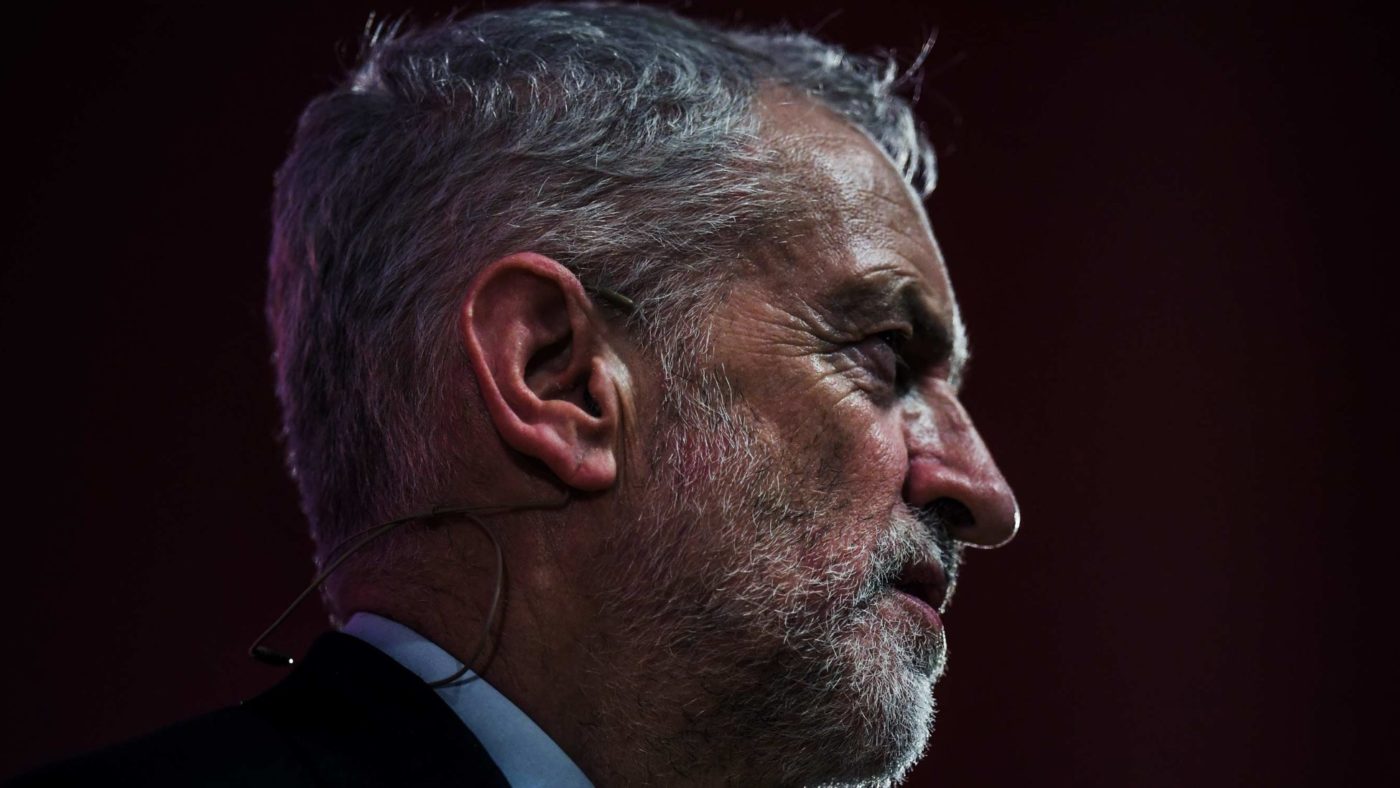If David Cameron was, in the infamous words of Vote Leave supremo Dominic Cummings, a “sphinx without a riddle” then for much of 2018 Jeremy Corbyn has been his polar opposite. Indeed, one would have to be especially uncharitable — or deluded — to see in Corbyn the haughty grandeur of an Egyptian deity. A Jupiterian leader, our Jezza most assuredly is not.
Riddles, on the other hand — Corbyn has aplenty. And for my sins, over the last 12 months I have spent an unhealthy amount of time trying to unearth his answers. It has not been a particularly edifying or successful task.
Sure, I have offered the odd conspiratorial clue as to why Corbyn prefers to take the road of most political resistance on Labour’s anti-Semitism scandal; a few post-hoc crumbs of rationality as to why he might turn his back upon a century of Labour internationalism and refuse to condemn Putin’s Salisbury stooges. Yet on Corbyn’s biggest riddle of all — Brexit — I come up short.
Yes, of course he has to manage Labour’s dangerously strained coalition — that much is priced in. But this does not begin to explain the farcical prevarication, the parliamentary witlessness, the flagrant disinterest and, slowly but surely, the outright fear Corbyn seems to exhibit towards all things Brexit. Therefore, as we approach the end of one political year and the start of another, it feels time to substantially revise the theory. Out goes the conspiratorial thinking, in comes a simpler analysis: Jeremy Corbyn has no riddles. The man is inscrutable because there is nothing much to scrutinise. He is just a mediocre, hopelessly over-promoted politician, failing at leadership in the most boring and banal of ways. He cannot take a tough decision.
This needs some qualification. For there are vanishingly few British politicians who are capable of taking such decisions. Parliament has been presented with one in the shape of the Prime Minister’s Withdrawal Agreement and has so far measured up to the task by retreating to the realms of fantasy. There are only three concrete proposals at this stage of the Brexit process: the Prime Minister’s deal, an unmanaged no deal, or revocation of Article 50. Everything else is semantics, pin-dancing, or impossible given the current constraints of time and Parliament. True, Corbyn’s “jobs first” Brexit is a particularly egregious and half-arsed example of a Brexit unicorn. But it is not as if there are any would-be leaders in Labour’s moderate faction offering up more practical alternatives.
Nevertheless, as the actual living breathing Leader of the Opposition, Corbyn deserves special scrutiny. For this job is, lest we forget, an audition for a role that is defined first and foremost by the exercise of power. But with power also comes a unique ability to disappoint people. The capacity for deferring decisions, for not delivering on wild promises, even for blaming the Tories — all that is greatly diminished when the buck stops with you. And what is so unusual about Brexit is that it has catapulted Corbyn into a position where, in possession of the decisive grouping in Parliament’s endless game of Brexit arithmetic, he holds meaningful power over the country’s future direction.
To put it bluntly, this is nosebleed territory for Jeremy Corbyn. Let’s be clear: Corbyn did not come in to politics to exercise power but to protest against its use. Some politicians may consider this a waste of a political life, but it certainly makes for an easier one. Your dividing lines are clear, your morality uncomplicated: on one side a band of brothers, on the other a unifying common enemy. Indeed, it might even be possible, in such a political milieu, to coast through decades without ever taking an active political decision. To merely follow the primary coloured heuristics and “dial in” the solidarity. Let the movement’s cleverer people do the thinking for you.
Power though, as Corbyn is discovering, changes everything. It is perhaps a telling clue that the two issues he has most evaded confronting – anti-Semitism and Brexit – are the two where the Corbynist left is most divided. But it is the latter of these that is his Waterloo – like the Prime Minister his leadership will, whether he likes it or not, be defined by Brexit. Looking towards his friends is no longer any help. Turn one way and he sees the Bennites railing against an anti-democratic capitalist club. Turn the other and he finds New Left disgust at migrant demonisation and the EU viewed as a legal bulwark against Tory reaction. That way Len, this way Diane; the moment approaches where Jeremy Corbyn cannot avoid his Brexit choice anymore. People he trusts, people he sympathises with, people he has campaigned with for decades are going to be disappointed with him. And he is terrified.


